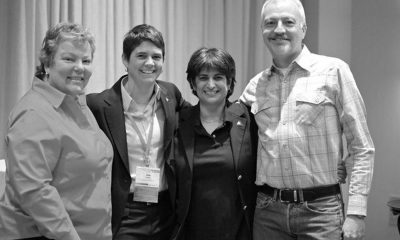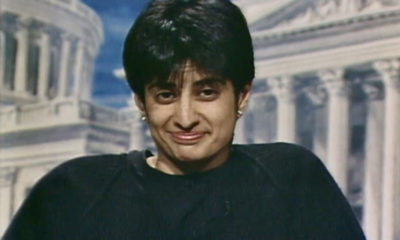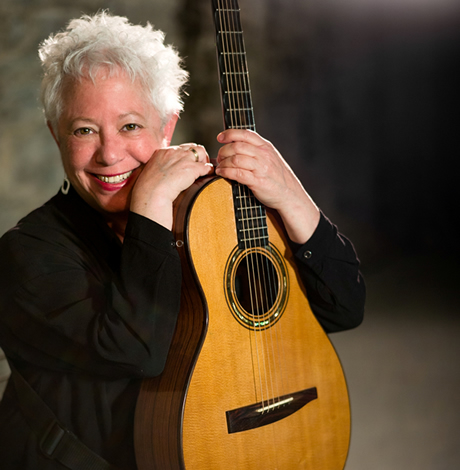Obituary
Attorney, LGBTQ activist and author Urvashi Vaid dies
Former National LGBTQ Task Force executive director passed away in New York
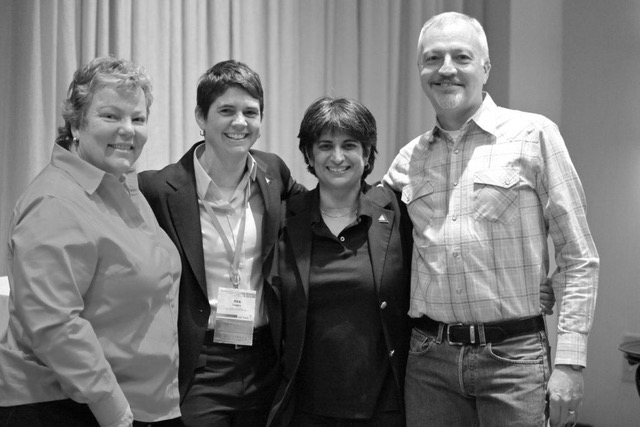
Urvashi Vaid, a powerful longtime influential attorney and LGBTQ activist whose career spanned from the early days of the AIDS pandemic to the contemporary battles over equality and equity for the LGBTQ community died today at her home after a bout with cancer in New York.
Vaid, 63, known for her extensive career as an advocate for LGBTQ rights, women’s rights, anti-war efforts, immigration justice and many other social causes, had served as the executive director of the National LGBTQ Task Force from 1989-1992 and served prior to that as the organization’s media director.
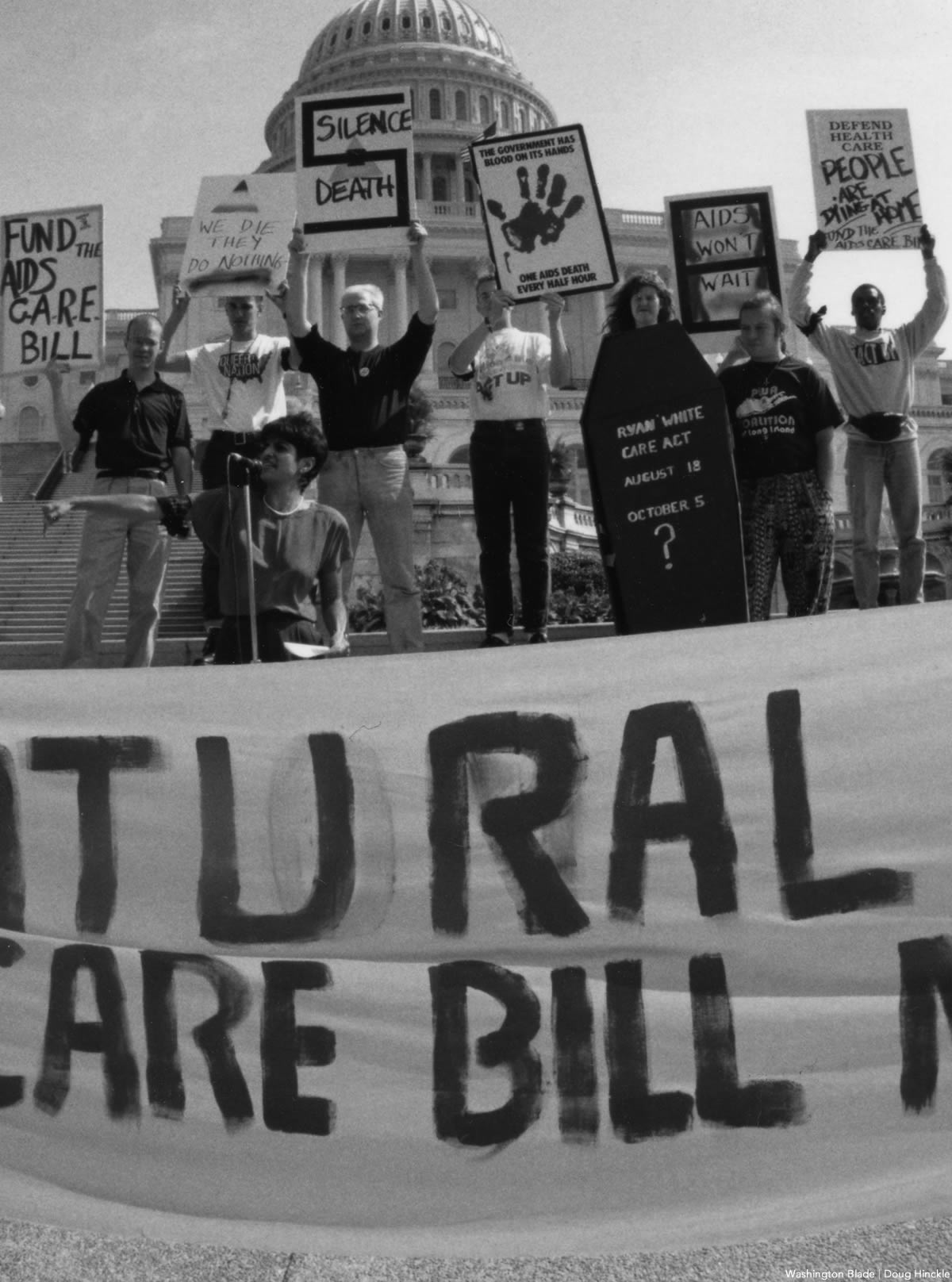
“We are devastated at the loss of one of the most influential progressive activists of our time,” said Kierra Johnson, current executive director of the National LGBTQ Task Force. “Urvashi Vaid was a leader, a warrior and a force to be reckoned with,” continued Johnson, “She was also a beloved colleague, friend, partner and someone we all looked up to—a brilliant, outspoken and deeply committed activist who wanted full justice and equality for all people.”
“Her leadership, vision and writing helped shape not only the Task Force’s values and work but our entire queer movement and the larger progressive movement. We will strive every day to live up to her ideals and model the courage she demonstrated every day as an activist and a person. She will be deeply I missed. I miss her already,” concluded Johnson.
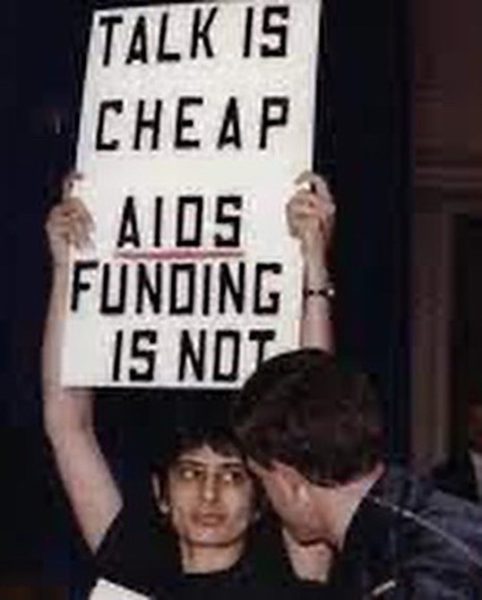
Vaid’s impact on the politics of the the AIDS crisis and the battles over full equality was considerable. During former President George H.W. Bush’s 1990 address on AIDS, Vaid, then the executive director of the National Gay and Lesbian Task Force, made a statement with her sign: “Talk Is Cheap, AIDS Funding is Not.” Her critique made waves, disrupting the press conference, and shedding light on the failures of the Bush administration.
Another former executive director of the National LGBTQ Task Force, Rea Carey noted in her post on Facebook:
“I am deeply sad that Urvashi Vaid has died. My heart is with Kate and all of Urv’s beloveds who have been with her these last years, months and days as she dealt with cancer. My activism has been greatly shaped by the fact that Urv took me seriously as a young leader in our movement. She seemed endlessly excited about the ideas and passion for justice that young activists held. She was one of our movement’s motivators and north stars.
Whenever Urv called, I’d clear my schedule for the next hour (at least!), pull out a pen and pad of paper and prepare to feverishly write down what were likely to be 10-20 rapid fire ideas of things she thought I should be doing, or doing much better … tomorrow!
Urv pushed me to see connections, dig deeper, and I was a better activist and leader for it. Her impact within the National LGBTQ Task Force carried on long after she left its staff. The sheer intellectual and strategic hole in our movement’s drive towards liberation and freedom, left by Urv’s death, is hard to grasp.
Up until her last months she was creating projects, mentoring others, pushing for liberation, gathering data through the National LGBTQ+ Women’s Community Survey. The only thing I ever saw Urv be more passionate about than her pursuit of freedom and liberation, was her love for Kate, their family, and her energy for her friends.
The best way we can honor Urv is to continue to fight for justice and the full liberation of all people,” Carey said.
Her time at the National Gay and Lesbian Task Force, in which she held multiple positions for over 10 years, notably media director, then executive director, saw her bring all aspects of queer life and struggle into the public eye. While at the Task Force, she co-founded the annual Creating Change conference, now in its 33rd year.
“I first met Urv in the early 1980’s when we were both young attorneys and lesbian activists in Washington, D.C. As we became friends and, eventually, colleagues, I admired her leadership and all that she accomplished, both within and outside of our movement—for queer people, for women, for people of color and against poverty. She continued her work to advance equity and justice until the very end.
“I’ll always be grateful to Urv for being one of the people who encouraged me, back in 1992, to accept the job running the Los Angeles LGBT Center. And when the National LGBTQ Task Force faced severe financial challenges in 2001, she played the key role in recruiting me to step in and help turn things around, lending her support every step of the way.
“Over the years, we spent many an hour laughing and scheming about ways to advance the causes we cared so deeply about. Urvashi was a visionary. But she was so much more: Brilliant, hilarious, charismatic, loving, determined and, above all, courageous. She made life better for all of us. Our community and our nation owe her an enormous debt of gratitude. Our hearts go out to Urvashi’s wife, Kate Clinton, and to everyone who loves her. If there’s a heaven, Urv is already organizing the angels,” said Los Angeles LGBT Center CEO Lorri L. Jean.
Troy Masters, the founder of Gay City News in New York, a longtime LGBTQ advocate and currently the publisher of the Los Angeles Blade noted upon hearing the news; “On a day when millions march to protect our rights and stand up to a right wing SCOTUS, we celebrate the life of one of our greatest social justice LGBTQ and AIDS warriors—keep shining on Urvashi Vaid.”
In 1995, after resigning from her position at the Task Force three years prior, she published her first book, “Virtual Equality: The Mainstreaming of Gay and Lesbian Liberation,” in which she criticized the idea of “mainstreaming” what was and is, in fact, a civil rights movement. Rather than tolerance, she argued, the objective for the movement should be fundamental, actionable change. It was not an immediately popular notion, as media representation for queer people was just beginning to take shape, though it was, for her, of great moral importance. In 1996 “Virtual Equality” won the Stonewall Book Award.
In her position as president of the Vaid Group, Vaid advised, mentored, and supported the LGBTQ movement.
In 2012, Urvashi Vaid launched LPAC, the first lesbian Super PAC, and it has since invested millions of dollars in candidates who are committed to social justice through legislation.
Prior to that, Vaid held positions on the boards at the Ford Foundation, the Arcus Foundation (where she served as executive director from 2005 to 2010) and the Gill Foundation.
She was a leader in the development of the currently on-going National LGBTQ women’s community survey.
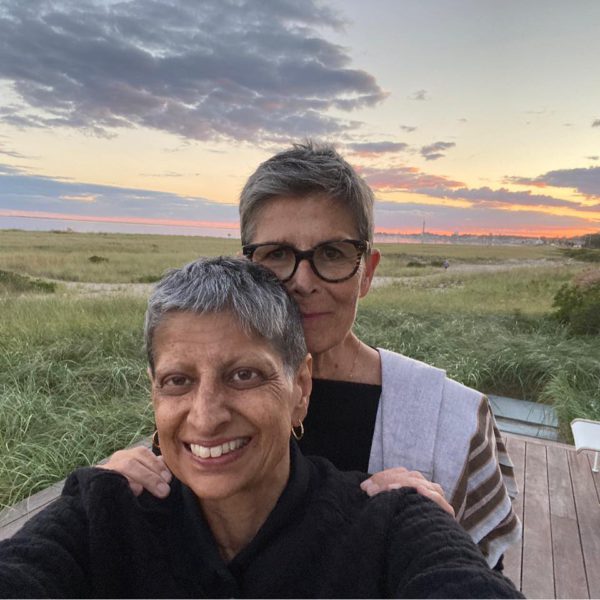
Vaid was the aunt of activist and performance artist Alok Vaid-Menon.
She is survived by Alok Vaid-Menon as well as her longtime partner, political humorist Kate Clinton.
Obituary
Local attorney, LGBTQ rights advocate Dale Sanders dies at 75
Acclaimed lawyer credited with advancing legal rights for people with HIV/AIDS
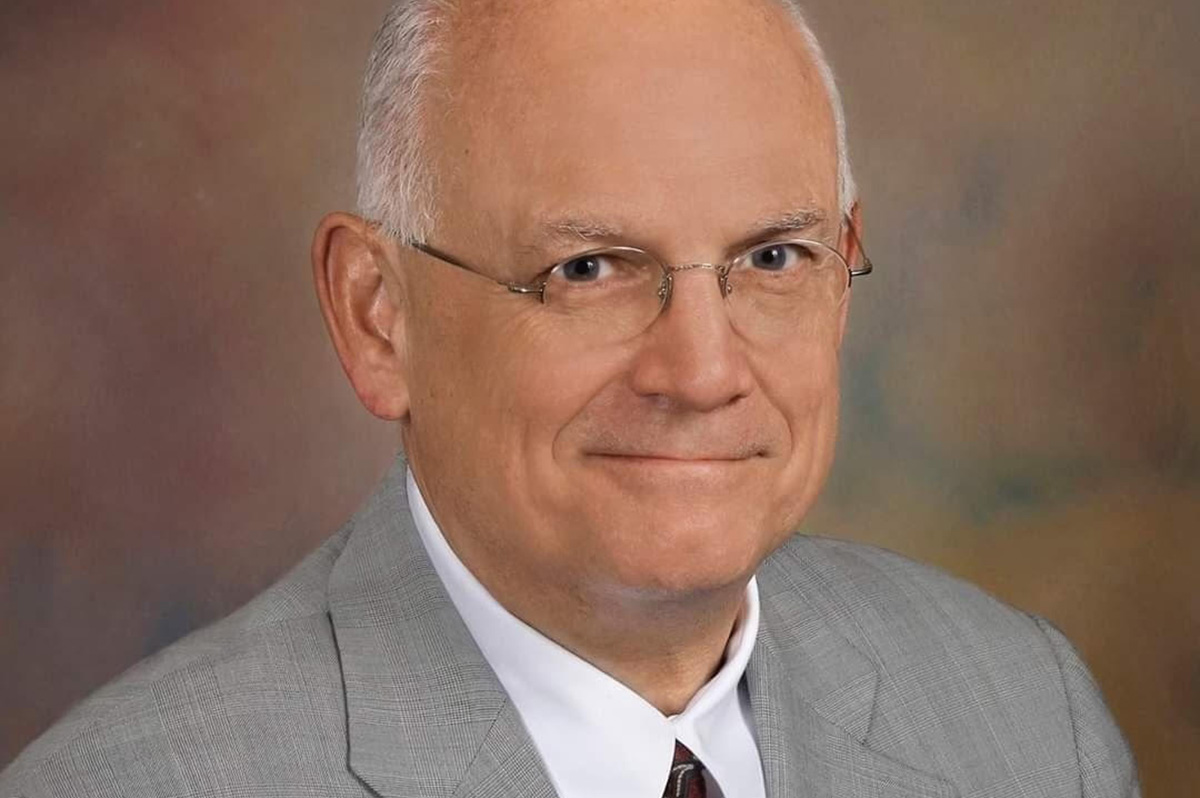
Dale Edwin Sanders, an attorney who practiced law in D.C. and Northern Virginia for more than 40 years and is credited with playing a key role in providing legal services for people living with HIV/AIDS beginning in the early 1980s, died April 10 at the age of 75.
His brother, Wade Sanders, said the cause of death was a heart attack that occurred at Johns Hopkins Hospital in Baltimore shortly after he had back surgery.
Wade Sanders described his brother as a “trial lawyer, passionate criminal defense, and civil litigator for human rights” for close to 50 years, with some of his work focused on “civil law, notably gay-related insurance discrimination during the AIDS epidemic.”
He called his brother “a zealous advocate for the oppressed, his clients, and his personal convictions.”
Born in Arlington, Va., and raised in McLean, Va., Dale Sanders graduated from Langley High School in McLean and received his bachelor’s degree from the University of Virginia, his brother said. He received his law degree from D.C.’s American University Washington College of Law and began his law practice in 1976 in Old Town, Alexandria, Wade Sanders said.
Amy Nelson, director of Legal Services for D.C. ‘s Whitman-Walker Health, said Sanders became one of Whitman-Walker’s original volunteer pro-bono attorneys in the 1980s.
“Dale was a beloved part of the legal services program and our medical-legal partnership for nearly 40 years,” Nelson said. “Dale was one of the clinic’s first volunteer attorneys at Whitman-Walker’s weekly, legal walk-in clinic offering free counseling to clients about their legal rights in the face of HIV/AIDS and LGBT discrimination from employers, landlords, medical providers, and insurance companies,” according to Nelson.
Nelson added, “Dale represented dozens of people impacted by the ignorance and prejudice attendant to an HIV/AIDS diagnosis, and his litigation wins were instrumental in advancing the legal rights of persons living with HIV/AIDS.”
Sanders’s most recent case on behalf of Whitman-Walker took place in 2023 in support of a transgender woman in Virginia who faced discrimination from her employer and health insurer, Nelson said.
In 1989, Whitman-Walker presented Sanders with its Gene Frey Award for Volunteer Service, and in 1994 presented him with its Founders Award for Pro Bono Legal Services, Nelson told the Blade. She said in 2024, Whitman-Walker re-named its annual Going the Extra Mile Pro Bono Award as the Dale Sanders Award for Pro Bono Excellence.
“Dale’s legacy helped to shape HIV/AIDS law, and his fierce commitment to justice will live on at Whitman-Walker Health,” Nelson said in a statement. “We will miss him dearly.”
Daniel Bruner, who served as Whitman-Walker’s legal services director prior to Amy Nelson taking that position, said Sanders played a role in shaping his own legal skills and knowledge.
“Dale was one of my earliest legal models among local, and national, advocates for people living with HIV and LGBT people,” Bruner told the Blade. “He was a fierce, persistent advocate for his clients and for the community,” Bruner said, adding, “He won key victories in several cases where employees’ or health care patients’ privacy had been egregiously violated. I certainly will never forget him.”
Wade Sanders said his brother was also an avid bridge player, saying he played competitively. “He earned the rank of Ruby Life Master, a pretty big deal in the bridge world,” Wade Sanders said.
Dale Sanders is survived by his husband, Christian Samonte; his sister, Joyce Sanders of York, S.C.; his brother Wade Sanders of West Jefferson, N.C.; and his beloved dogs Langley and Abigail, his brother said in a statement.
A memorial service for Dale Sanders organized by the Sanders family and the LGBTQ Catholic group Dignity Washington will be held Saturday, May 10, at 1 p.m. at St. Margaret’s Episcopal Church at 1830 Connecticut Ave., N.W. in D.C., a Dignity Washington spokesperson said.
Obituary
Nanette Kazaoka, an unlikely AIDS activist, dies at 83
Member of ACT-UP, longtime social justice advocate
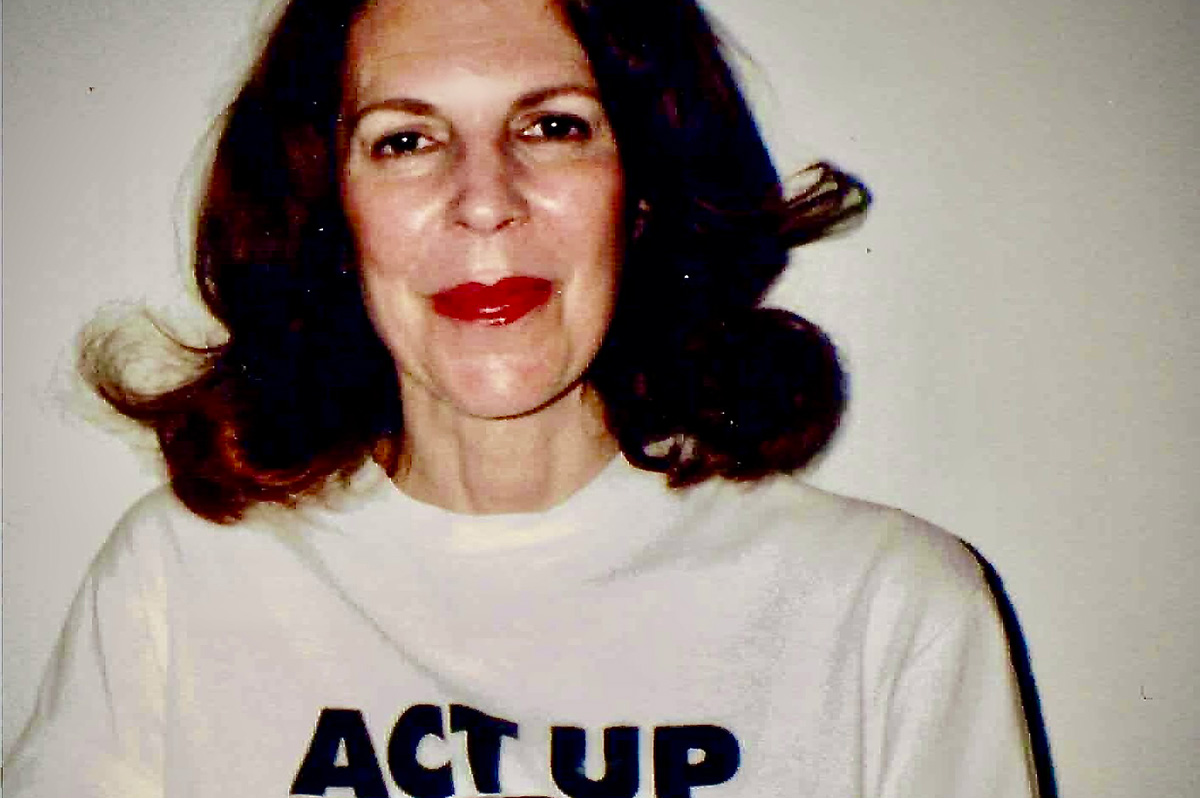
Nanette Kazaoka, a well-known figure in the fight for HIV/AIDS awareness and the rights of marginalized communities, passed away on Oct. 2 at her home in New York City. She was 83. The cause of death was complications from vascular dementia and Alzheimer’s disease, according to a statement from her daughter Kelly Kochendorfer.
Kazaoka was an advocate for justice, particularly in the early days of the AIDS crisis, when she became a member of the AIDS Coalition to Unleash Power, or ACT-Up. She is perhaps best remembered for her participation in a 2004 protest in front of Madison Square Garden during the Republican National Convention, when she and 11 fellow activists staged a dramatic naked demonstration, demanding debt cancellation for impoverished countries, according to a statement from the family.
“Bush, Stop AIDS. Drop the Debt Now!” they chanted, with slogans stenciled in black paint on their bodies. The bold protest drew national attention and underscored the urgency of global debt relief as a key element in the fight against AIDS.
She was born Nanette Natalina Bottinelli on June 12, 1941, in New York City. Her father, Angelo, worked as a waiter at the St. Regis Hotel, while her mother, Betty McComb, was a part-time burlesque dancer.
She married her first husband, Fred Kochendorfer, in 1963, and they had two children together, Kim Skrobe and Kelly, both of whom survive her.
Kazaoka’s journey to Fire Island marked a transformative period in her life. Kochendorfer wanted to live there, and so they began renting in 1967. Kazaoka then made a bold decision that would shape her future: She left her husband for another man and began living on Fire Island in 1968-1969, with the children attending school in Ocean Beach, according to the family’s statement.
This period coincided with the early days of the gay rights movement, as Fire Island was emerging as a hub for LGBTQ culture. Her experiences during these years contributed to the strong sense of activism and solidarity that would later define her role in ACT-UP and the broader fight for LGBTQ rights.
Kazaoka’s second husband, Katsushiga “Kats” Kazaoka, a Japanese-American psychologist who had been interred during World War II, died of cancer in 1984, pushing her to enter the workforce as a receptionist while studying occupational therapy at Downstate Medical Center. By 1990, she had earned her degree and sought work with AIDS patients.
In 1988, a close friend introduced her to ACT-UP, sparking the start of her full-time dedication to AIDS activism, the family said. Kazaoka became known for her passionate, unrelenting activism, whether protesting at City Hall or challenging anti-LGBTQ policies at St. Luke’s Hospital.
Kazaoka’s activism spanned 35 years, making her a beloved and respected figure within ACT-UP and beyond, the family noted. She was featured in Sarah Schulman’s “Let the Record Show: A Political History of ACT-Up New York, 1987-1993” as well as “Act-Up Oral History, No. 162,” a digital history. She was the cover photo of “Fag Hags, Divas and Moms: The Legacy of Straight Women in the AIDS Community,” and was included in The New York Times T Living Magazine story, “LEGENDS PIONEERS AND SURVIVORS.
Her dedication to science continued even after her passing: She donated her brain to the Mount Sinai NIH Brain and Tissue Repository for research to advance the understanding of the human brain health and disease to help end dementia, the family said.
Along with her daughters, Kazaoka is survived by her son-in-law John Skrobe, granddaughter Stella Skrobe and daughter-in-law Christine Arax, all of New York. She and her third husband, Paul Haskell, divorced in 2000.
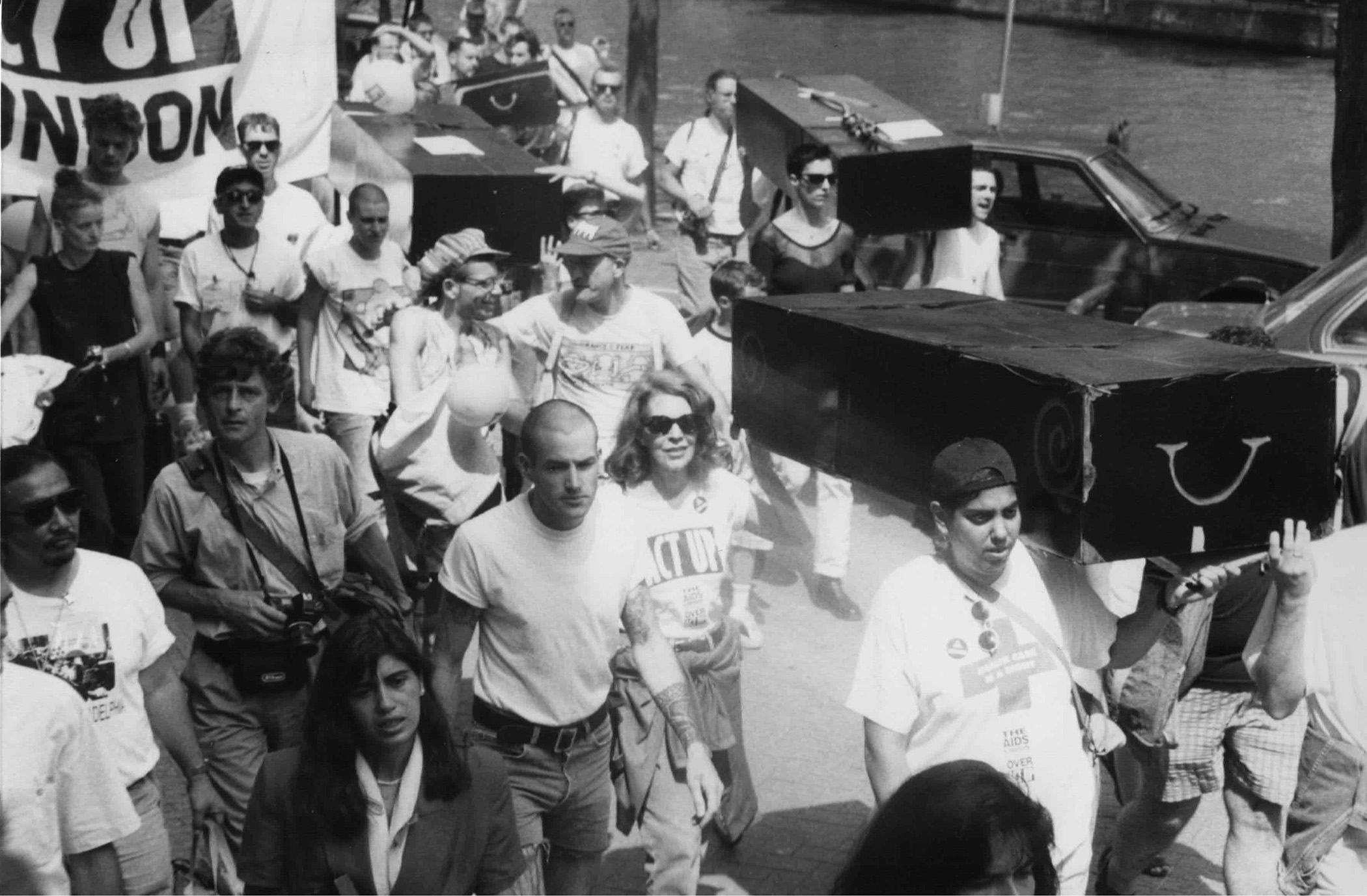
Local
D.C. LGBTQ rights advocate Jeri Hughes dies at 73
‘Force of nature’ credited with pro-trans policy at city jail
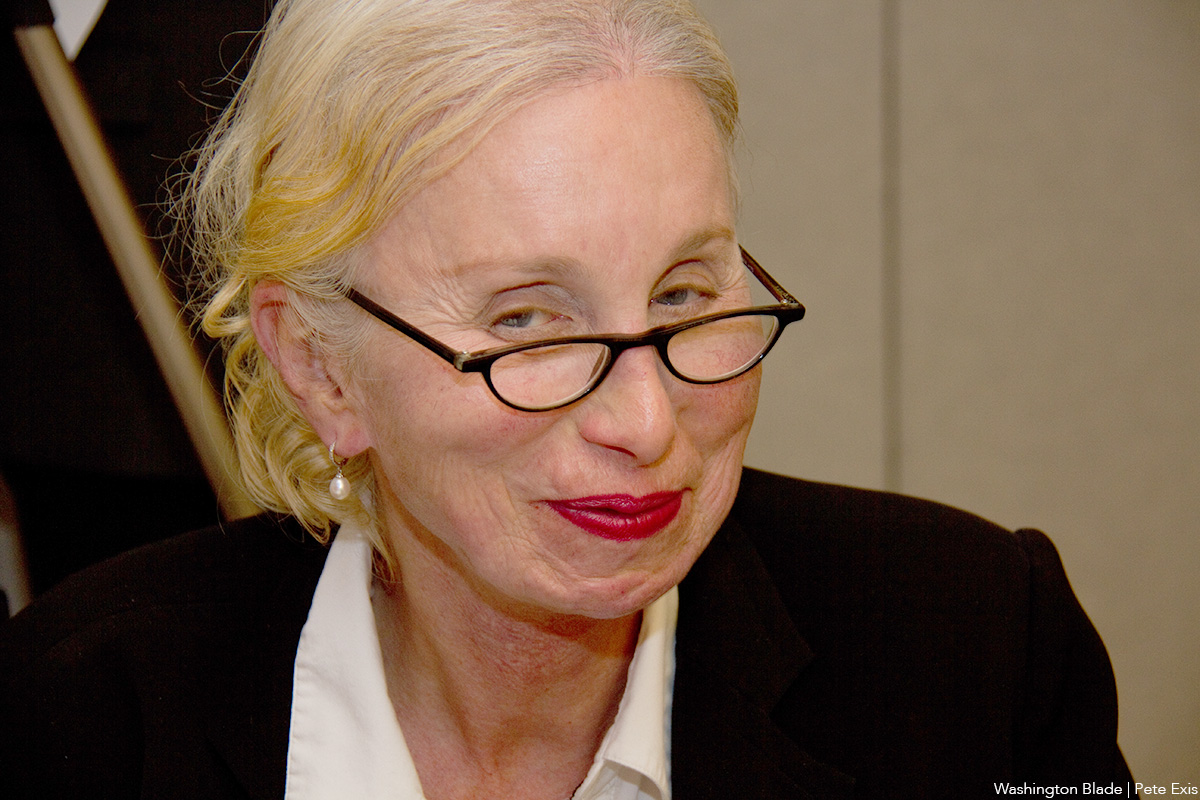
Jeri Hughes, a longtime D.C. transgender rights advocate who has worked closely with activists in support of the local LGBTQ community, died March 18 at her home after a seven-year battle with lung cancer. She was 73.
Hughes, who has worked for the past 11 years at the D.C. Department of Employment Services, most recently as a Workforce Development Specialist, became involved in local LGBTQ rights and transgender rights endeavors since she moved to D.C. around 2005.
Among other endeavors, Hughes, along with D.C. transgender rights advocate Earline Budd, has served for more than a decade on the D.C. Department of Corrections’ Transgender Housing and Transgender Advisory committees.
Budd this week said Hughes played an important role in ensuring that Department of Corrections officials continue to follow a 2009 policy of allowing transgender inmates to choose whether to be placed in the men’s or the women’s housing units at the D.C. jail.
“In her toughness and determination, Jeri was a force of nature,” said Rick Rosendall, former president of the D.C. Gay and Lesbian Activists Alliance. “She pressed the D.C. Department of Corrections for more humane and respectful treatment of transgender inmates,” Rosendall said.
“She pressed the D.C. government to set an example by hiring more trans people,” according to Rosendall, who added that Hughes interacted with D.C. police officials, including former D.C. Police Chief Peter Newsham, to push for respectful treatment of trans people by the police.
Hughes’s LinkedIn page shows that prior to working at the D.C. Department of Employment Services she served as housing coordinator for a local social services organization called T.H.E. Inc., where, among other things, she “monitored and mentored a diverse population of LGBT youth.”
Her LinkedIn page shows she also worked from June 2009 to May 2010 as an administrative assistant at the D.C. Anacostia Watershed Society.
Hughes’s brother, Lou Hughes, who said the Hughes family is originally from Ohio, told the Washington Blade Jeri Hughes served in the U.S. Navy after high school as a torpedo operator in a submarine in the South Pacific. He said a short time later Jeri Hughes moved to New York City, where she operated a company that provided commercial laundry service to restaurants and hospitals.
Lou Hughes said his sister Jeri moved to D.C. around 2005 and initially lived with him and his wife in a basement apartment in their house before moving to her own apartment in Northwest D.C. where she remained until her passing.
He said it was around 2005 that his sister informed her family that she planned to transition as a transgender woman at the age of 54. “And our family fully supported her decision, helped her finance the various surgeries,” Lou Hughes said. “And once she went through the transition it was like she was fully reborn.”
“And that’s why all these negative comments about transgender people right now – it’s very hurtful to our family because she was really the classic transgender person who was really simply born in the wrong body and gave our entire family a real sensitivity and understanding of what that meant,” Lou Hughes said.
Denise Leclair, one of Jeri Hughes’s closest friends and former roommate, said among Jeri Hughes’s many interests was boating. Leclair said Hughes persuaded her to join Hughes in purchasing a 45-foot sailboat in 2019, shortly after Hughes was diagnosed with lung cancer.
“We spent the next two months getting it fixed up and we started sailing,” Leclair recalls. “And we did quite a bit of sailing, so she really put her heart and soul into restoring this boat.”
Leclair said the boat was docked in a harbor in Deale, Md., just south of Annapolis. She said up until a few months ago, after her cancer prevented her from working full-time, Hughes spent most of her time living on the boat until her illness forced her to return to her D.C. apartment.
“My Dearest Sister Jeri, born April 30, 1951, left our restless Earth in the early morning of March 18, 2025, succumbing to the lung cancer which she battled against so bravely for seven years,” Lou Hughes says in a statement. “As we all know, Jeri was a person of high intellect, incredible energy and fearless in the face of adversity,” her brother wrote.
“Whether through acts of quiet charity, tireless advocacy, or simply offering a listening ear, Jeri made it a mission to uplift, support, and care for every person she encountered,” his statement says. “Her life was a testament to empathy in action, leaving a lasting legacy of love, hope, and selflessness that will continue to inspire all who knew her.”
In addition to her many friends and colleagues in D.C., Jeri Hughes is survived by her brother, Lou Hughes; sister-In-law Candice Hughes; daughter, Casey Martin; son-in-law Wally Martin; grandson Liam Martin; granddaughter, Mirella Martin; niece, Brittany Hughes; and nephew Klaus Meierdiercks.
A memorial service and celebration of life for Jeri Hughes is scheduled to be held May 10 at D.C.’s Metropolitan Community Church at 1 p.m., according to Earline Budd.
-

 Federal Government3 days ago
Federal Government3 days agoHHS to retire 988 crisis lifeline for LGBTQ youth
-

 Opinions3 days ago
Opinions3 days agoDavid Hogg’s arrogant, self-indulgent stunt
-

 District of Columbia3 days ago
District of Columbia3 days agoD.C. police seek help in identifying suspect in anti-gay threats case
-

 Virginia3 days ago
Virginia3 days agoGay talk show host wins GOP nom for Va. lieutenant guv

